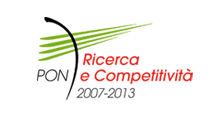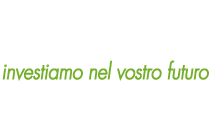Results to date: 08/09/2014
SEGUI IL PROGETTO
The project P@glia was started in 2012 under the initiative of four young adults. It was based on an innovative idea to achieve the thermic-acoustic isolation of buildings using natural products that are ecologically-friendly and ecologically-sustainable. The project intends to develop these products using know-how and research relevant to the established goals.
This initiative forms a part of integrated efforts to sustainably develop energy efficient and low carbon technologies for urban areas, rural areas, and industrial sites, through the development of technology and management models capable of: reducing energy consumption, promoting the intelligent use of natural resources, and striking down greenhouse gas emissions and that which sustains exploitation. This will be achieved through the conversion of wastewater generated by industrial processes.
Until now, in the eyes of farmers, straw has represented a waste, a by-product that is difficult to use, to the point that many, through outdated farming practices, use expensive methods to crumble or break down the straw, or burn it, a practice discouraged or even prohibited by new environmental guidelines. In this regard, all of the relevant legislation of the so-called "conditionality" establishes options available for processing the undesirable straw by-product.
The idea of creating something using straw may seem strange and ill-fated, but there are many examples of housing from different cultures that demonstrate the efficiency of straw, grass, and reeds as building materials. These materials have been used for thousands of years in combination with earth and wood to create shelter. Even today around 1000 new structures are built each year.
We are no longer faced with the banal consideration of straw as a cumbersome by-product, but as a local resource that is ecologically-friendly and sustainable, annually renewable, produced in excess, and thus perfectly usable in housing. Even the economic aspect lies in its favour: straw production currently outstrips market demand and is therefore available at a very low cost.
It is a naturally recyclable zero KM resource and poses no problems regarding disposal: in the case of demolition of the construction, indeed, it can be easily separated from other materials.
The chemical absorption of carbon dioxide during photosynthesis is in even higher proportion than the carbon dioxide emissions caused by the production and transport of bales of straw. Buildings with thermal insulation made of straw can help, therefore, to reduce carbon dioxide emissions substantially in the construction industry. The straw satisfies all the requirements of a "sustainable" construction material, and more so than wood, which from the production and treatment of timber requires much more energy and produces much more carbon dioxide with respect to the production of bales of straw.
Walls of straw are healthy, therefore, from the point of view of biocompatibility, especially if organic straw is considered, this is a natural building material and not dangerous to humans. Straw does not emit polluting and noxious substances and is breathable as water vapour.
An initial study of cost/benefit feasibility has demonstrated the potential of such products. The easy reproducibility and low cost of provision allow the retention of such a very interesting product on the market. The organic building sector is in constant growth; incentives and sensitisation of clients to the European objectives would permit diffusion of the product within the market.
Finally partnerships have been activated with the Bari Polytechnic - Faculty of Technical Physics and the University of Bari - Faculty of Chemistry, and analysis and measuring is beginning on samples of the product.
For more details on the objectives of the project
Go to the presentation (italian version ppt)
Press Review (italian version)






 Storify
Storify twitter
twitter YouTube
YouTube